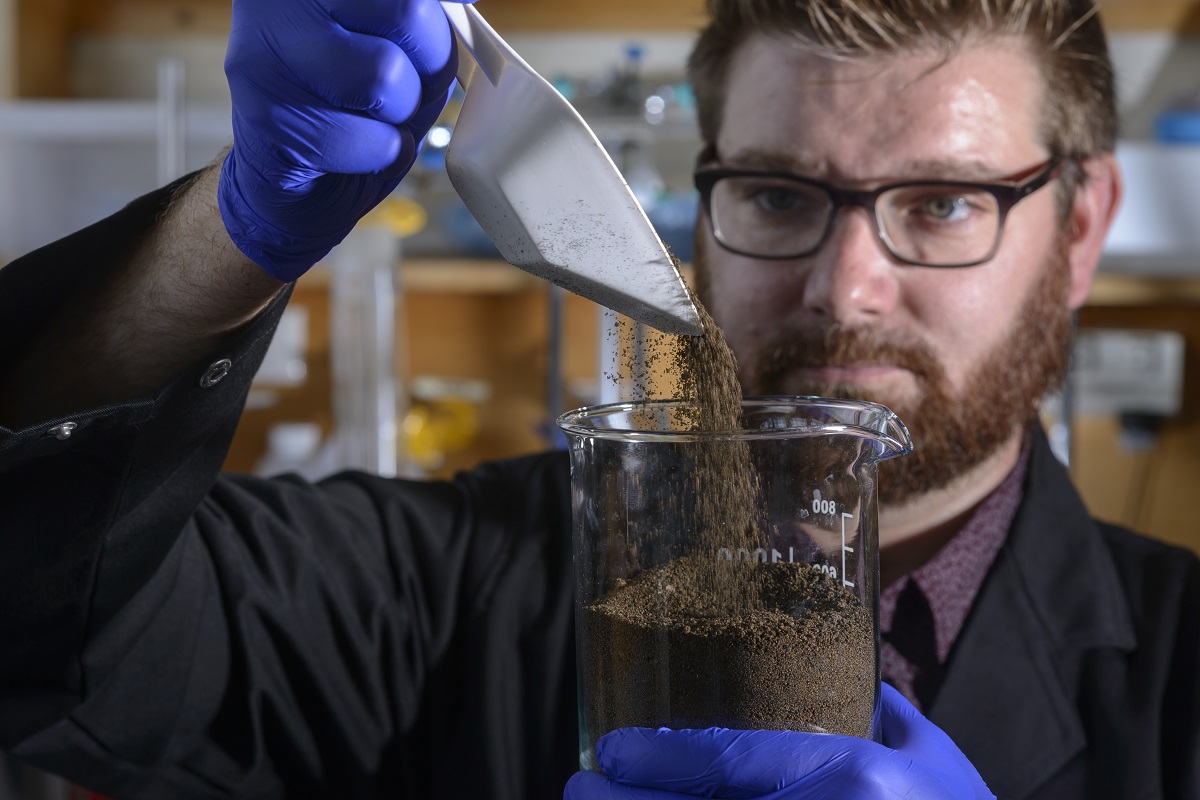
Professor Justin Chalker’s green chemistry breakthroughs at Flinders University have received a timely boost with his latest project being awarded a $1 million ARC Future Fellowship.
Research being conducted in the Chalker Research Lab at Flinders University’s Bedford Park campus continues to expand on investigation into the many diverse attributes of new sulfer-based polymers created from a combination of waste materials.
The Australian Research Council has announced that Professor Chalker, the Matthew Flinders Professor of Chemistry in Flinders’ College of Science and Engineering, has received $1,039,924 in the first round of 2022 Future Fellowship announcements for his project “Sulfur-based materials for infrared optics and thermal imaging” (FT220100054). This project aims to investigate novel sulfur polymers for use in infrared optics and thermal imaging.
This new application for the polymer will provide an eco-friendly solution to lens production. Current thermal imaging lenses are made in energy-intensive processes from expensive semiconductors and toxic chalcogenide glasses.
In contrast, highly abundant elemental sulfur (a waste by-product of petroleum production) can be converted into polymers that are highly transparent to mid- and long-wave infrared light, providing a promising low-cost production alternative.
Through developing this technology, expected outcomes include novel methods to manufacture polymers from low-cost sulfur and their use as lenses for thermal imaging.
Significant benefits are expected, such as access to low-cost, recyclable materials for thermal imaging required in surveillance, night vision, diagnostics and spectroscopy.
This new project continues a series of breakthrough discoveries that have created new molecules and materials, which saw Professor Chalker awarded with the Prime Minister’s Prize for New Innovators in 2020.
“Professor Justin Chalker’s incredible body of work utilising sulphur polymers will continue to push back the boundaries of knowledge and create new technologies as a result of the ARC’s support,” says Professor Robert Saint, Deputy Vice-Chancellor (Research) at Flinders University.

